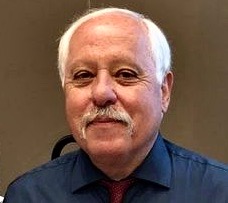Recognized as one of the most prolific and influential mountain climbers of his era, Beckey has been called many things: rebel, recluse, outlier, showboat, schemer, womanizer and worse. The moniker that stuck, however, was “dirtbag,” a tribute to the nomadic lifestyle he fearlessly and unapologetically pioneered.
Born in 1923 in Dusseldorf, Wolfgang Paul Heinrich Beckey (later shortened to “Fred”) emigrated with his family to the Pacific Northwest to escape pre-war Germany. When he died at 94 in late 2017, the fabled mountaineer and author would be the first to scale hundreds of routes to the summits of the tallest peaks in North America.
Fascinated by mountaineering as a youth (above and below, with my Dad), my first exposure to Fred Beckey was in the 1960s, along with other Pacific Northwest climbers like twin brothers Jim and Lou Whittaker, Willi Unsoeld and Tom Hornbein. Yet Beckey was virtually unknown compared to his more famous comrades.
Shunning publicity, Beckey lived like a hermit in Seattle, sequestered to write, or otherwise disappearing for months on expeditions. A hapless vagabond, he was a wiry nomad with backpack and climbing gear. He never married or had children, never had a business or sought security of any kind. He just wanted to climb mountains.
Though he admits help with his definitive guidebooks, the series includes not only access routes but also rich detail and nuance related to the history of the area and the natural environment, including geology, botany and much more. Having visited many places he writes about, I was amazed at the detail and accuracy of his books.
The movie captures the paradox of Fred Beckey. On one hand, he was scorned by some in the mountain community for his cantankerous nature and obsessive quest for routes. His first ascent, in winter, of Yocum Ridge on Mt. Hood (the nose on the face of the mountain as viewed from Portland) is nothing short of remarkable.
Considered irascible by some, he wasn’t generally viewed as a team player. When partners were hurt or killed on expeditions, Beckey suffered criticism. When the first American team to summit Mt. Everest was organized, no one invited Beckey. The Mountaineers refused to publish his books at first but eventually saw the light.
On the other hand, he was widely admired by generations of climbers for his extraordinary exploits. In seven decades, he had claimed more virgin ascents than any mountaineer alive. His guidebooks were a fusion of historical insight, technical analysis, geographical research and a sense of awe, poetically chronicling the beauty of nature.
The documentary illustrates the many faces of Fred Beckey -- the vagabond, the charmer, the recluse, the intellectual, the rogue -- along with interviews with a literal “who’s who” of legendary mountaineers: Reinhold Messner, Yvon Chouinard, Royal Robbins, Jim Whittaker, Ed Viesters, Conrad Anker and Eric Bjornstad.
“Dirtbag” details the life of the rebel climber with a clever aggregation of narrative, interviews and (interestingly) animation, and has already won more than two dozen awards for best documentary. So if you’re into mountain climbing and backcountry adventure, my advice is to buy the ticket, take the ride.














1 comment:
Very interesting story! I kind of like that he wasn't well liked :)
Post a Comment